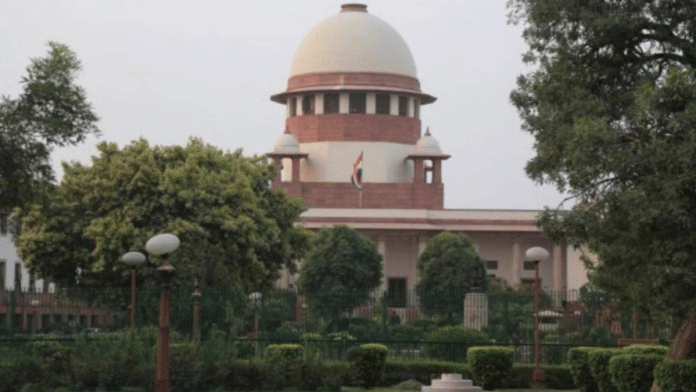Gurugram: Emphasising that procedural fairness and the right to be heard must be upheld even in cases involving alleged violations of building regulations, the Supreme Court set aside a Punjab and Haryana High Court order directing action against unauthorised constructions in Gurugram.
In an order delivered on 28 October, a bench of Justice J.K. Maheshwari and Justice Vijay Bishnoi set aside the 13 February High Court order that had issued directions against property owners on a Public Interest Litigation (PIL) without making them party to the petition concerning the alleged illegal and commercial use of residential properties.
The bench observed that while unauthorised or illegal construction cannot be protected, for the determination of whether the construction is illegal or unauthorised, the owners and the occupiers must be afforded due opportunity.
The apex court observed that the High Court passed directions regarding the jurisdiction of the civil courts in such matters, as well as the removal of constructions without joining the appellants (owners and occupiers of the properties) in the writ petition, where they could have presented their case.
In a strongly worded observation, the top court noted, “It goes without saying that the opportunity of hearing is a sine qua non (an essential condition) for fair administration of justice and the observations of the Court should not adjudicate the rights of any parties unheard.”
The High Court order was challenged by the appellants on the ground that they were not afforded an opportunity of hearing before directions were passed, which adversely affected several civil suits filed by them.
Justices Bishnoi and Maheswari noted that the appellants were neither a party to the PIL nor were they afforded the opportunity of a hearing, and the impugned order was passed without taking note of the individual cases.
The apex court restored the writ petitions before the High Court and directed appellants to file appropriate applications within two weeks from the date of uploading the order. “If any person who is going to be affected applies to the High Court within the time as specified, they would also be permitted to join.”
Directing the restored PILs to be decided “at the earliest, as far as possible, after affording opportunity to all concerned,” the court also set a limit of six months for the case to be decided at the high court.
The latest order has reinforced the fundamental principle that even in cases involving public interest and alleged violations of law, individual rights cannot be adjudicated without proper notice and opportunity to be heard—a cornerstone of procedural fairness in Indian jurisprudence.
What is the case?
The case stems from a bunch of PILs filed before the Punjab and Haryana HC regarding rampant building violations in Gurugram. The state government had submitted detailed reports that didn’t deny the allegations made in the PILs.
The government’s reply confirmed that residential properties were being used for commercial purposes, constructions had exceeded permissible Floor Area Ratio (FAR) limits, and additional unauthorised floors had been built.
Relying on Section 15 of the Haryana Development and Regulation of Urban Areas Act, 1975, the court had issued directions for action against violators within two months.
The court had also observed that civil courts lacked jurisdiction to entertain suits filed by property owners against such violations.
The order affected 172 civil suits pending before various courts, with some appellants having already obtained decrees in their favour, and some others yet to approach civil courts regarding the alleged violations, which were allegedly non-compoundable in nature.
(Edited by Insha Jalil Waziri)






